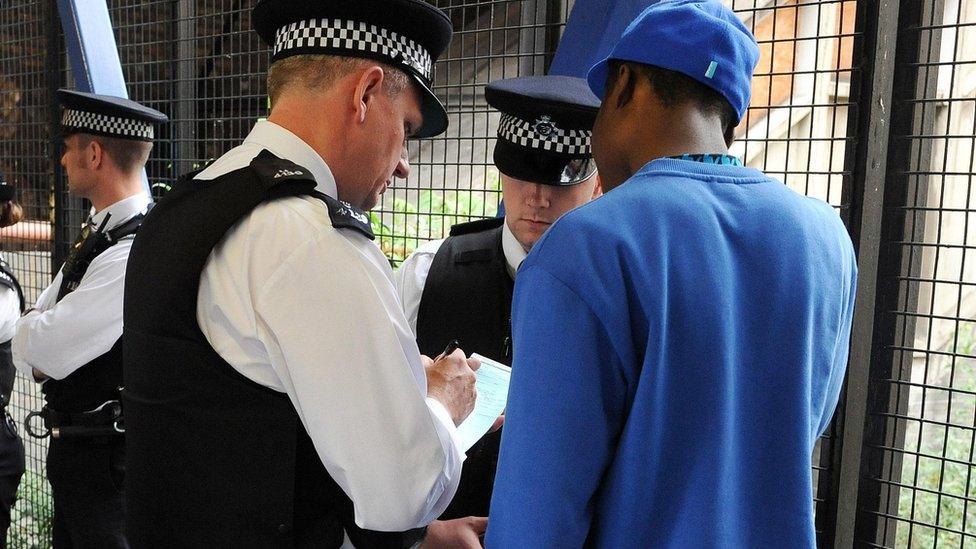Met Police gangs matrix 'requires overhaul'
- Published

The gangs matrix was set up following the 2011 riots
The Met Police's gangs matrix requires a comprehensive overhaul, a review published by London's mayor has found.
The database was set up following the 2011 riots to identify those at risk of committing, or being a victim of, gang-related crime in the capital.
The paper, external commissioned by Sadiq Khan discovered that while the matrix is a useful tool, there are concerns about how it is applied and enforced.
Scotland Yard said the list did not discriminate against any community.
The database was created to gather intelligence on about 3,400 suspects.
It has proved controversial due to issues such as how individuals are added and removed, and how the information is stored.
Last month, the Information Commissioner's Office found the database had been poorly managed and was potentially racially discriminatory.
'Serious breaches'
The mayor's review found that while the matrix has had a positive impact on reducing offending, there are "inconsistencies and gaps in the management, processes and oversight" of the database.
It also found that there were a disproportionate number of young black men included, with 75% of those on the matrix aged under 25, and 80% on the list being black.
As a result this has led to mistrust among some communities about the police, the review found.
It recommended that the Met should carry out a full review of those on the list who have a "zero-harm score" to check if they should be removed.
The force has also been told it should improve the way it looks after data while also improving transparency by publishing information about how the matrix works and why it benefits those on the list.
Mr Khan said by implementing the recommendations, the Met "can address the serious breaches of data protection laws and ensure only those at genuine risk of causing or being a victim of violence are included".
Deputy Assistant Commissioner Duncan Ball said the report had shown the matrix to be "a very effective operational tool that can reduce violent crime".
He admitted that Scotland Yard "have work to do in order to ensure public confidence in our use of information and data" and said the force would "ensure that the recommendations within the report are taken forward".
- Published6 December 2018

- Published16 November 2018
- Published16 August 2018

- Published26 July 2018

- Published9 May 2018
